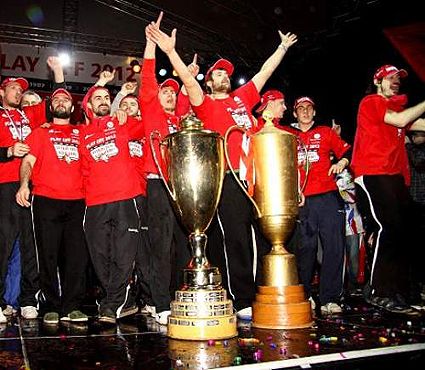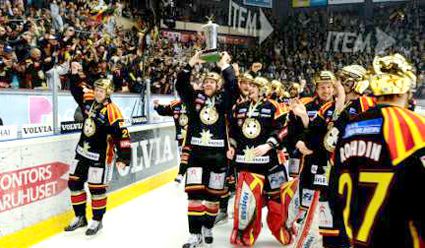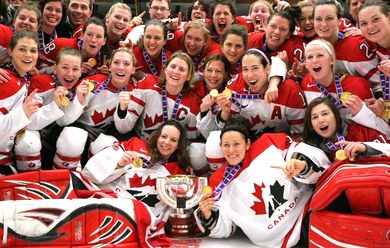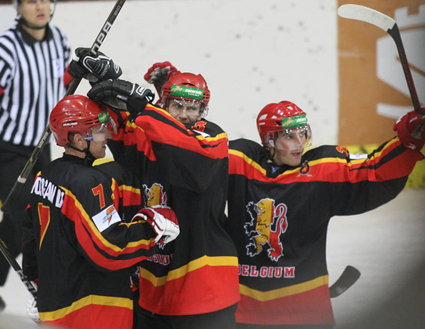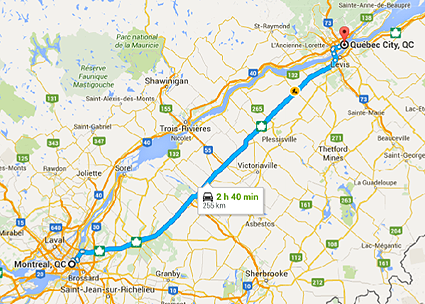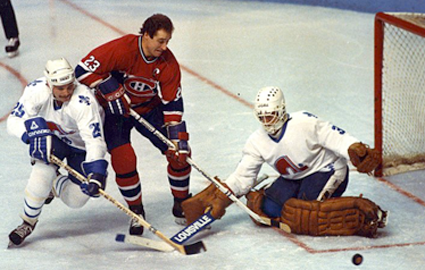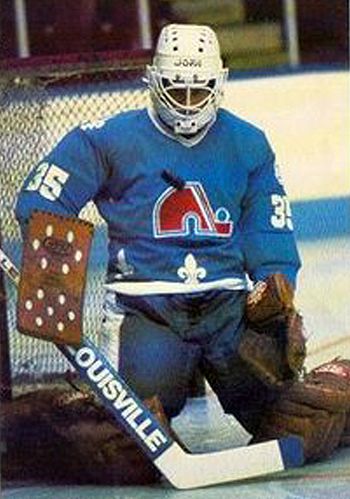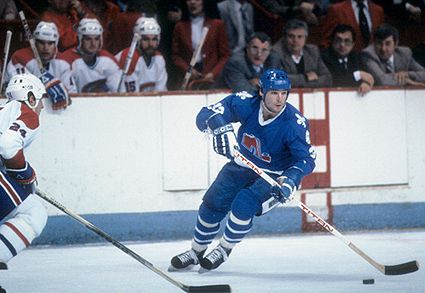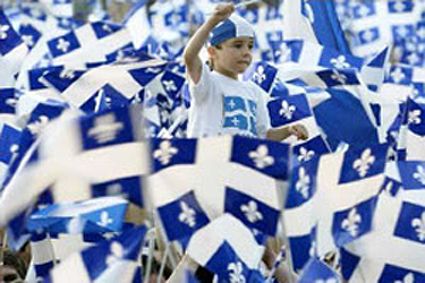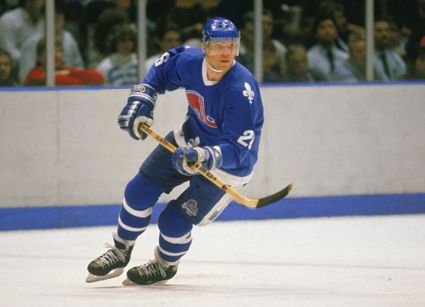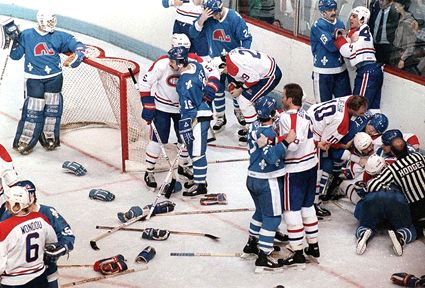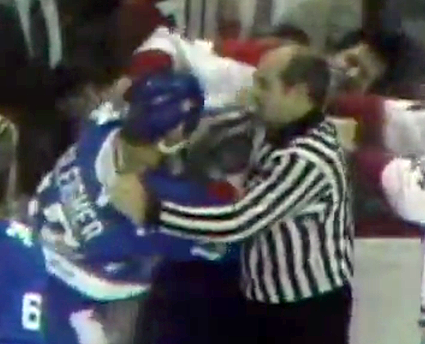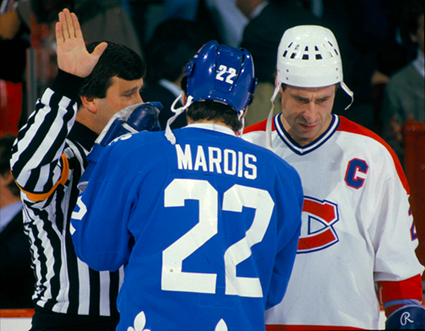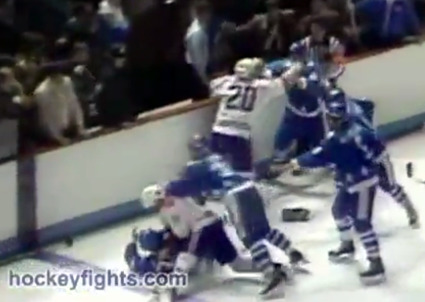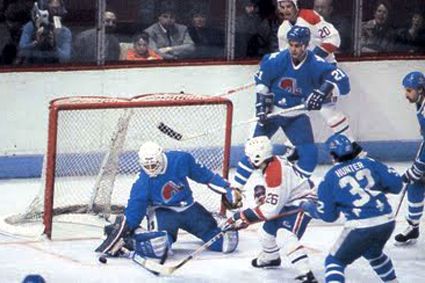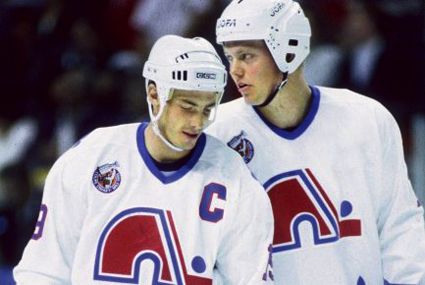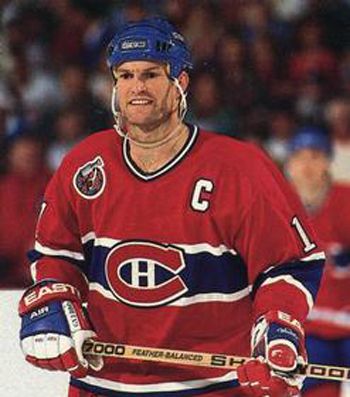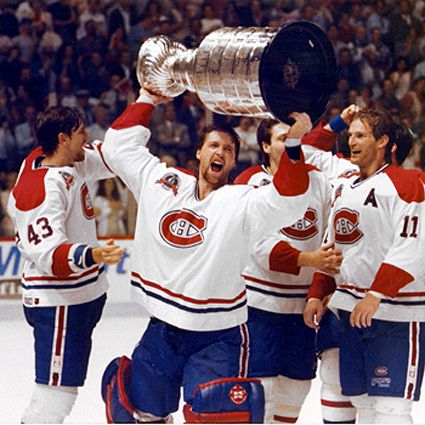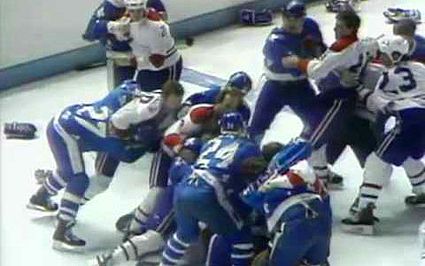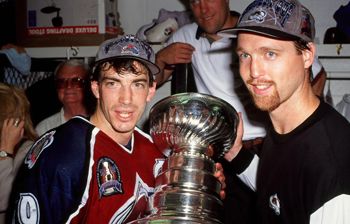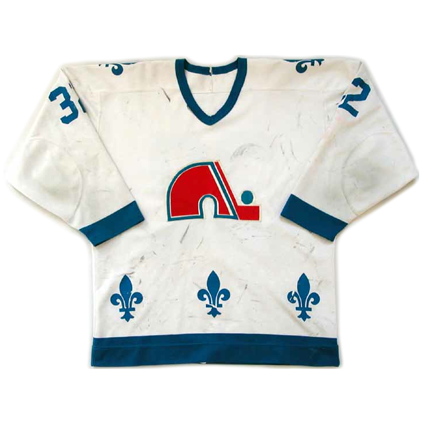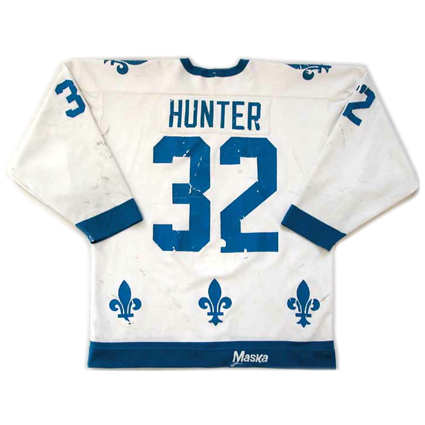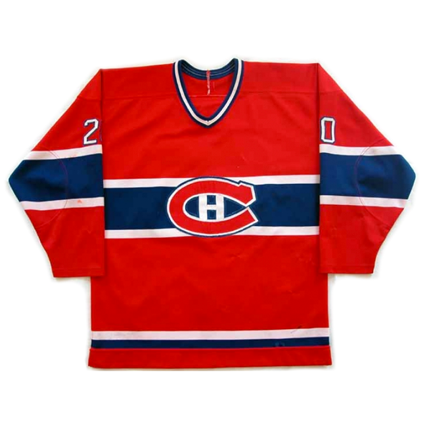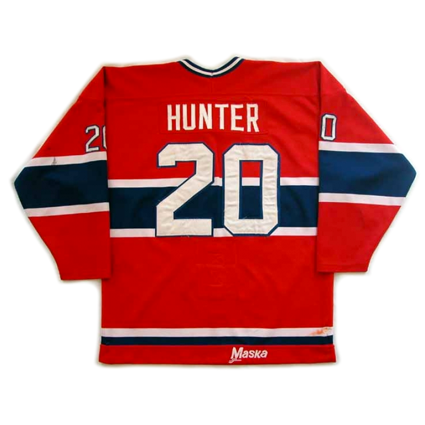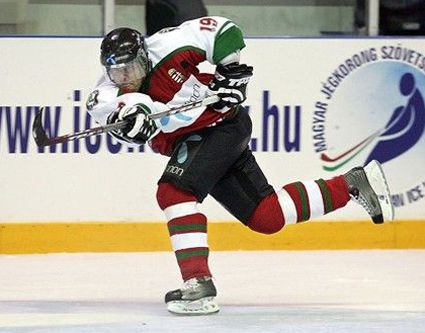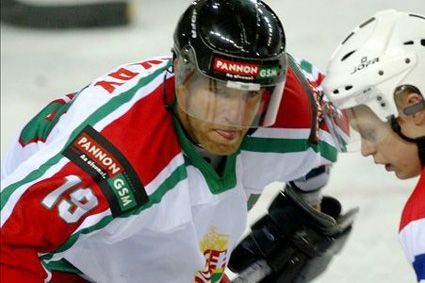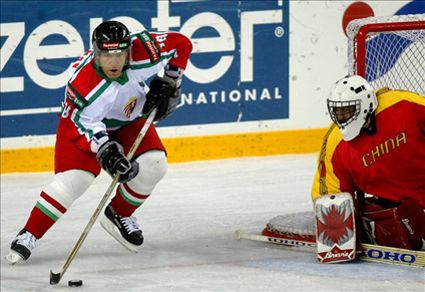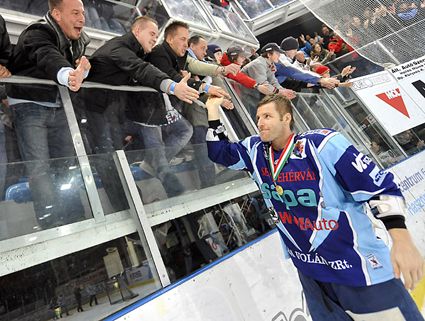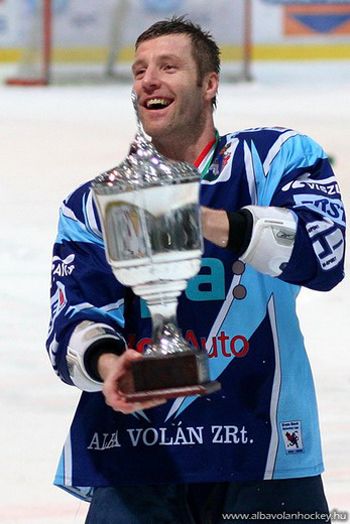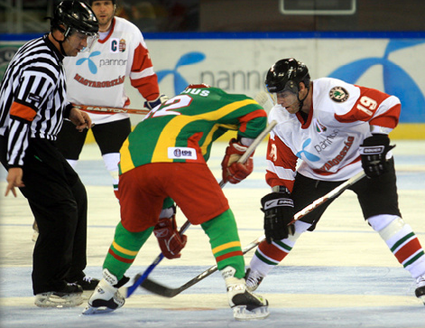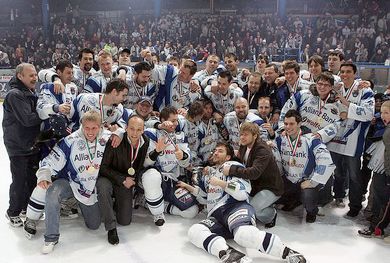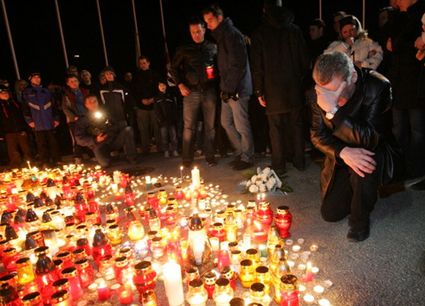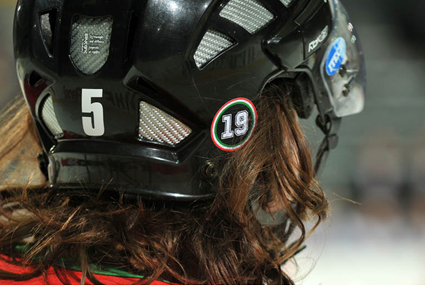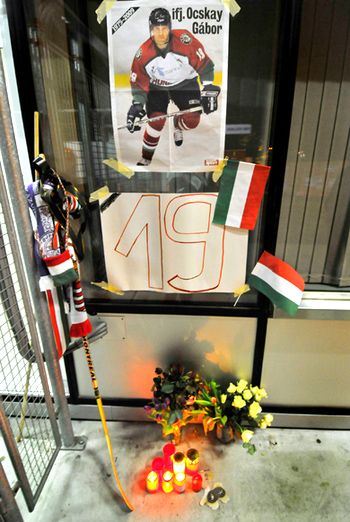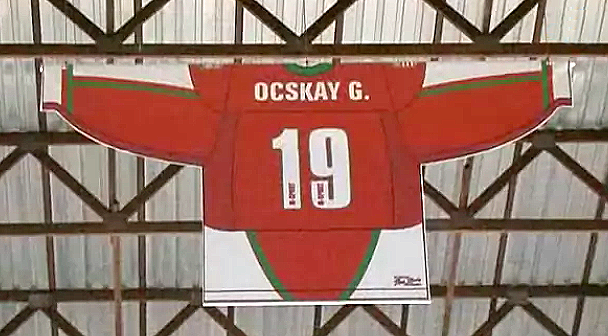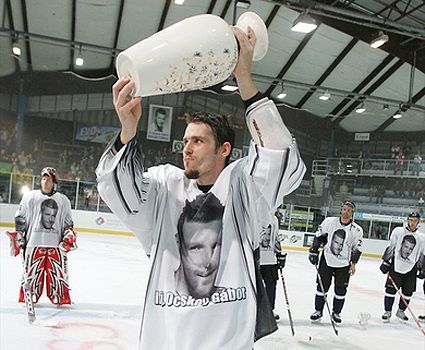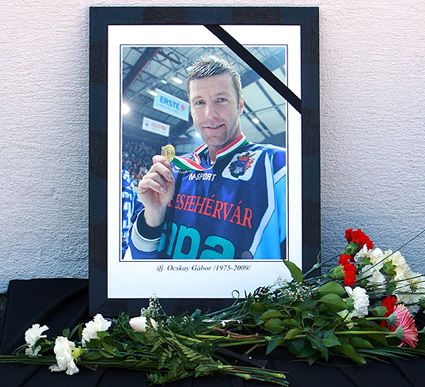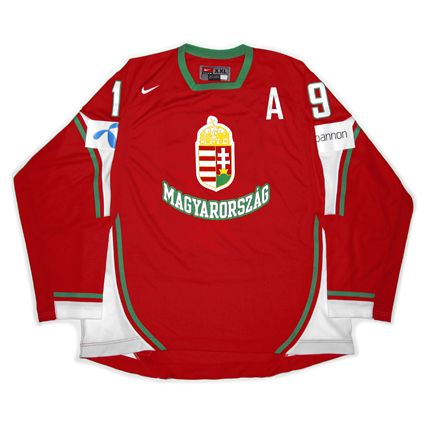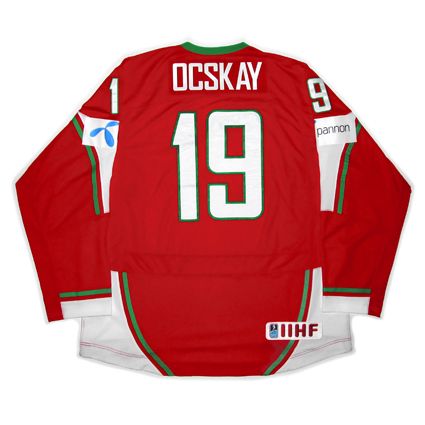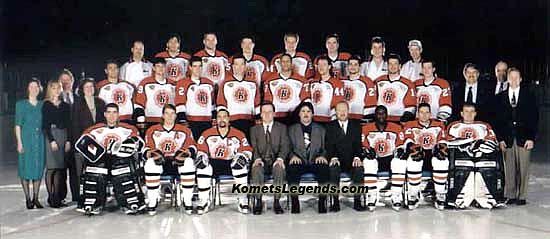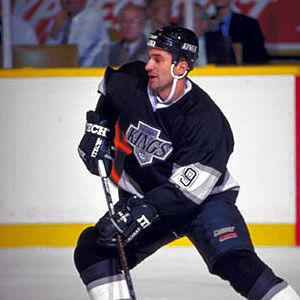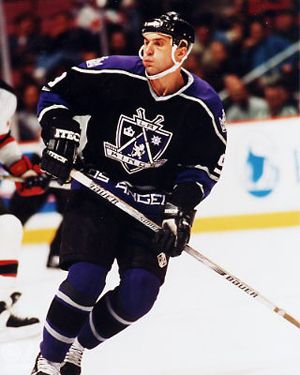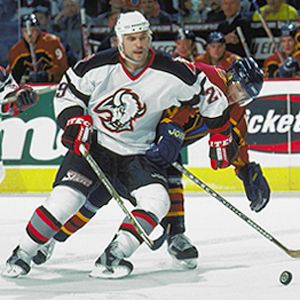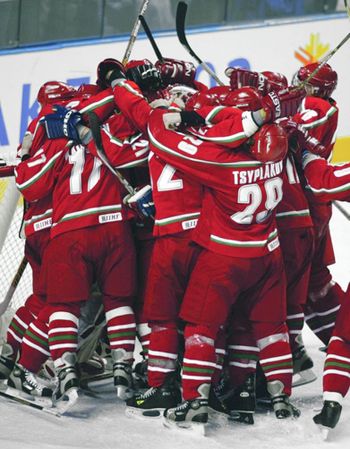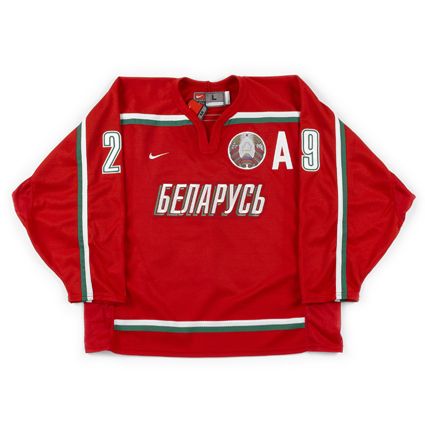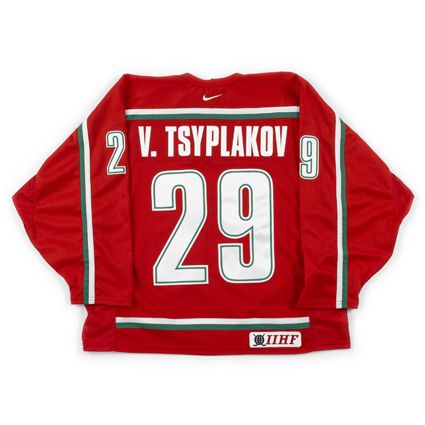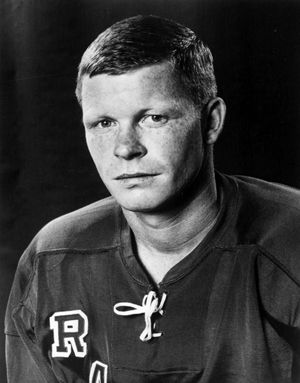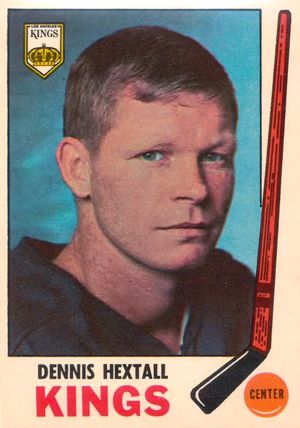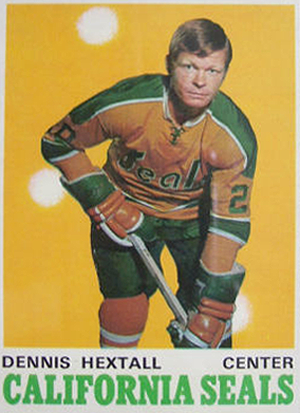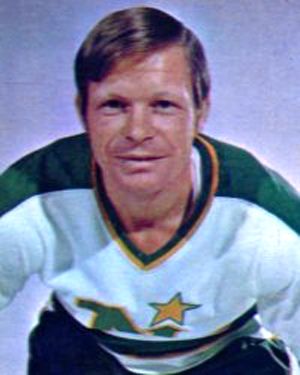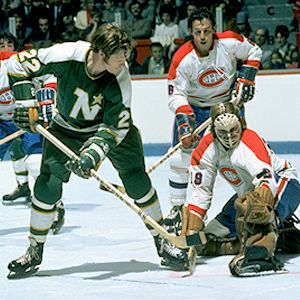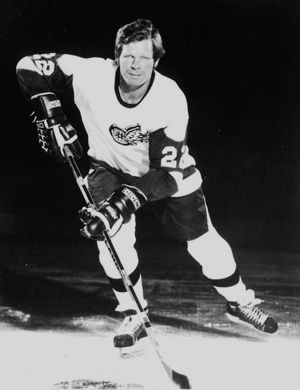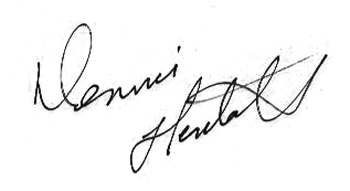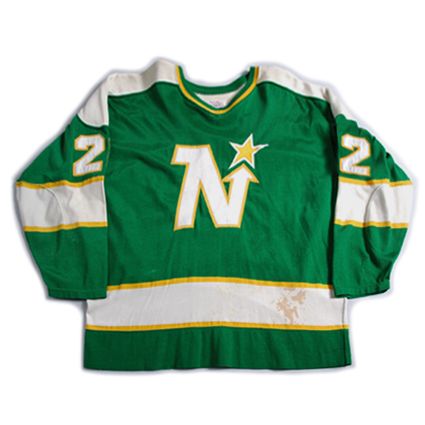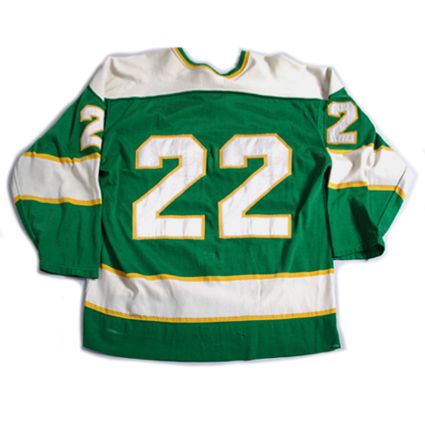Saturday, April 21, 2012
International Hockey Saturday Update
Here is an update to our post earlier today about the various domestic and international championships taking place around the world of hockey outside the NHL.
In the KHL Gagarin Cup Finals UHC Dynamo Moscow got out to a 3-0 lead after 5 minutes of the second period and held on for a 3-2 win with the last goal for Omsk not coming until they had pulled their goaltender and there was just 19 seconds remaining in the game. Omsk still leads the series 3-2 with the next game Monday in Moscow.
In Finland's SM-Liiga, JYP Jyväskylä won in overtime 5-4 to take a commanding 3 games to 1 lead over Pelicans Lahti in their final series as both teams held the lead during their back and forth Game 4.
HC Slovan Bratislava ended HC Košice's three year run as champions of Slovakia's Extraliga in dramatic fashion when Libor Hudacek scored his second goal of the game at 5:23 of overtime in Game 7 to return the title to Bratislava. It appears there is no audio and you might have some difficulty finding the players in amongst all the ads on the ice, but it's a darn nice individual effort once you get to see the replay from a tighter camera shot.
In the various IIHF tournaments, the Division III gold and promotion to Division II went to hosts Turkey who dominated Luxembourg, by a score of 8-1 to maintain their lead in the standings over North Korea, who finished 3 points back thanks to their earlier loss to Turkey.
Division I Group B, host Poland, led 2-1 after one period only to see South Korea pull even in the second period and get the game winner early in the third period and kill off a late penalty to secure promotion to Division I Group A while Australia was demoted from Division I after their 5-3 loss to Romania.
In Division I Group A, hosts Slovenia exerted their dominance with a 3-2 win over Austria to finish undefeated in five games even though both countries had already secured promotion to the Top Division for 2013. While Ukraine beat Japan 2-1 in a shootout, it was not enough as Great Britain 5-4 win over Hungary kept them safe and Ukraine will drop down to Division I Group B for next year.
Sunday sees Game 4 of the German DEL Finals between Adler Manheim and Eisbaren Berlin, with Manheim leading the best-of-five 2 games to 1.
Also today the United States takes on Sweden in the gold medal final of the U18 World Championship in the Czech Republic, the third consecutive final between the two nations, with both previous ones having gone to the Americans.
Don't forget, the 2012 World Championships are less than two weeks away and will take place in Sweden and Finland, with the semifinals and finals taking place in Helsinki.
Labels:
International Hockey Update 2012
International Hockey Update
It's a busy time of year in the world of hockey beyond the NHL, as there are any number of domestic championships on the line as well as a slate of recent and current international tournaments taking place, several of which will conclude this weekend.
In Russia, the Gagarin Cup Final faces off at 2:00 Moscow Time, which is 6 AM Eastern in the United States and Canada. To date, the series has been incredibly close, with HK Avangard Omsk winning Game 1 by a score of 2-1, UHC Dynamo Moscow turned that score around for a 2-1 win of their own in Game 2. Omsk took Game 3 in Moscow 1-0 and put themselves on the brink of their first Gagarin Cup with a 2-1 overtime win in Game 4. The low scores have been fitting, as both team's strong points have been their defense, with both starting goaltenders posting the second and third best goals against averages during the regular season and neither team having anyone place higher than 21st in scoring.
Update: Their game concluded early this morning in Omsk and Dynamo got out to a 3-0 lead after 5 minutes of the second period and held on for a 3-2 win with the last goal for Omsk not coming until they had pulled their goaltender and there was just 19 seconds remaining in the game. Omsk still leads the series 3-2 with the next game Monday in Moscow.
Update: Their game concluded early this morning in Omsk and Dynamo got out to a 3-0 lead after 5 minutes of the second period and held on for a 3-2 win with the last goal for Omsk not coming until they had pulled their goaltender and there was just 19 seconds remaining in the game. Omsk still leads the series 3-2 with the next game Monday in Moscow.
Germany's DEL championship final has come down to Adler Manheim (Manheim Eagles) and Eisbaren Berlin (Berlin Polar Bears) After Maheim's 2-1 win on Friday, they hold a 2 games to 1 lead in the best-of-five final with Game 4 coming on Sunday.
In the Czech Republic, HC Moeller Pardubice and HC Kometa Brno finished their championship final with Pardubice taking the series 4 games to 2 by winning the final three games, with the last coming on the 19th. It was Pardubice's sixth championship.
Finland's SM-Liiga is down to the final two clubs, Pelicans Lahti and JYP Jyväskylä. Following JYP's 4-1 win in Game 3, the hold a 2 games to 1 lead after dropping Game 1 2-0 and rebounding with a 6-2 win in Game 2.
Sweden's Elitserien has been decided in favor of Brynäs who downed Skellefteå AIK 4 games to 2. After Brynäs 6-3 win in Game 1, the next four games were decided by a single goal, with Skellefteå winning Game 4 and 5 in overtime before Brynäs closed out the series in Game 6.
Brynäs parades their newly won hardware
The ZSC Lions , coached by Canadian Bob Hartley, took the Swiss National League A championship by outlasting SC Bern in a series that went the full seven games in dramatic fashion with the controversial winning goal coming with just 2 seconds remaining for a 2-1 win in the winner take all contest!
Finally, Slovakia's Extraliga sees HC Slovan Bratislava and HC Košice tied at 3 games apiece in a back and forth series.
In the various IIHF tournaments, the women from Canada won the World Championship after defeating the United States 5-4 in overtime to upset the Americans on home ice after they had previously defeated Canada 9-2 in the group stage. Earlier in late March, the Czech Republic earned promotion back to the Top Division by winning the Division I Group A tournament, narrowly edging Norway by a single point.
The Canadian women celebrating their return to the top of the world
On the men's side, the U18 World Championship concludes tomorrow when Sweden and the United States meet in Brno in the Czech Republic. Sweden advanced to the finals with a 7-3 win over rivals Finland while the US held off Canada 2-1, their second win over the Canadians in the tournament. The two teams will meet for the championship for the third year in a row as the Americans go for their fourth consecutive title, while Sweden's U18 team hopes to complete the double as the U20 team won the World Juniors back in January by defeating Russia 1-0 in overtime.
The senior men's schedule has been a full one, with the Division III gold to be decided today with hosts Turkey in the driver's seat with 12 points from an undefeated record. They will be playing Luxembourg, who enter the game with 9 points and are tied with North Korea, who also have 9 points but hold the edge in goal differential at 14-12. Remember, the IIHF awards 3 points for a win, so a Turkey loss and Korean win would trigger all manner of tiebreakers to decide who earns the promotion to Division II.
Division II Group B went to Belgium, who had a perfect 5-0 record, beating China and hosts Bulgaria easily. The Belgians are thus promoted to Division II Group A, which concluded on Wednesday in Iceland when Estonia defeated Spain 5-3 to win the championship and the desired promotion to Division I Group B.
Division II Group B winners Belgium
New for 2012, a new ladder system was put into place, and rather than Division I and II being one large Division divided into two groups, with each winner receiving promotion to the Division above them, the respective Group B's are now considered a step below Group A for competitive reasons. The net result is now the teams (in theory) ranked 17-22 will play each other in Group A, while the teams 23-28 are in the same group to narrow the gap between the skill levels of the clubs and eliminate the number of uncompetitive games between teams ranked 17th facing teams ranked down in 28th for example.
Division I Group B will be decided later today with hosts Poland, with 4 wins and 12 points, taking on South Korea, who have 3 wins and an overtime win for 11 points with the winner taking the title and moving up the ladder to Division I Group A.
While the competition in Division I Group A comes to a close today, both hosts Slovenia and Austria have already secured promotion and will meet today for bragging rights. Slovenia is currently 4-0 for 12 points, while Austria is has 3 wins and a shootout loss to Japan for 10 points, far ahead of Hungary, who at 2-2 are sitting on 6 points. Poland, in Division I Group B will be hoping to take the place of either Ukraine, with 1 point and facing Japan, or Great Britan, who have 2 points and face Hungary.
The 2012 World Championships are less than two weeks away and will take place in Sweden and Finland, with the semifinals and finals taking place in Helsinki.
The teams competing will be divided into a new format of two Groups, with Group A consisting of Finland, Canada, the United States, Switzerland, Slovakia, Belarus, France and the promoted Kazakhstan, while Group B sees Russia, Sweden, the Czech Republic, Germany, Norway, Latvia, Denmark and Italy battling it out for not only the World Championship, but survival at the bottom end of the table.
Labels:
International Hockey Update 2012
Friday, April 20, 2012
The Battle of Quebec 1979-1995
Since the demise of the anglophone Montreal Maroons in 1938, the Montreal Canadiens had the French speaking province of Quebec all to themselves for 41 seasons until the 1979 NHL expansion which admitted the four surviving members of the World Hockey Association, one of which was the Quebec Nordiques, who were based out of Quebec City, located 145 miles to the northeast of Montreal.
The rivalry started before play even began when the Canadiens were one of five NHL clubs to vote no on the proposal to include the WHA teams in the NHL. However, the owner of the Canadiens, Molson Breweries feared a boycott of their product by not only the citizens of Quebec, one of whom called in a bomb threat to the Molson brewery in Quebec City after the no vote, but also in both Edmonton and Winnipeg, the other two Canadian cities with WHA clubs affected by proposed expansion.
Proof that fans were upset with the Canadiens no vote came in sales of a mere 100 bottles of Molson at the next Jets game in Winnipeg, when they would normally sell 2,500 bottles. Signs appeared in the affected team's arenas which read "Molson's Don't Want Us. We Don't Want Molson's". The Canadiens eventually voted for the expansion, but were able to win a provision that the Nordiques would not receive a share of national television revenue for five years. "Our primary consideration in changing our vote was selling beer," Montreal president Jacques Courtois said at the time.
Proof that fans were upset with the Canadiens no vote came in sales of a mere 100 bottles of Molson at the next Jets game in Winnipeg, when they would normally sell 2,500 bottles. Signs appeared in the affected team's arenas which read "Molson's Don't Want Us. We Don't Want Molson's". The Canadiens eventually voted for the expansion, but were able to win a provision that the Nordiques would not receive a share of national television revenue for five years. "Our primary consideration in changing our vote was selling beer," Montreal president Jacques Courtois said at the time.
At first, the two teams were placed in separate divisions, with Montreal in the Norris and Quebec in the Adams, which limited the intensity of the rivalry. The two teams met for the first time on October 13, 1979, which was won by the host Canadiens 3-1. Their first meeting in Quebec City came a little over two weeks later, which was won by the Nordiques in upset fashion 5-4.
Over the Nordiques first two seasons in the NHL Montreal held a slight edge at 3-2-3 with each team holding serve at home.
A rivalry was born with the Nordiques entered the NHL in 1979
One factor in the rivalry between the two clubs was that, while Quebec City was the capital of the province, Montreal was a much larger, more cosmopolitan city with a population four to five times that of Quebec. With the Nordiques now in the NHL, it was the first time Quebec City felt it could compete head to head with Montreal at any level.
The rivalry intensified in 1981-82 when the NHL realigned along geographical lines, which saw Montreal now placed in the Adams Division with the Nordiques. Along with the change in divisions, the schedule was also altered. The old system saw each club play every other team four times and the first place team in the regular season was matched with the 16th and last team to qualify for the playoffs without regard for conferences. Now, the new format called for each team to play the other clubs in their division eight times and the first two rounds of the playoffs would now take place entirely within the division.
The 1981-82 season series between the Canadiens and Nordiques saw the teams tie at 3-3-2 with Montreal taking a win in Quebec City, the first time either team was able to secure a victory on the road.
Montreal would win the Adams Division with a 46-17-17 record for 109 points, while Quebec (33-31-16, 82 points) finished fourth behind the Boston Bruins and Buffalo Sabres to set up a first round playoff matchup with the heavily favored Canadiens.
Game 1 went to the Canadiens 5-1, who outshot the Nordiques by a whopping 41-19. Game 2 was tied 2-2 after two periods but Dan Bouchard shut down the Canadiens while Pierre Aubry's goal at 2:30 in the third held up as the game winner for the Nordiques to even the best-of-five series 1-1 as the Nordiques took away a vital 3-2 win on the road, their first ever win in Montreal.
With the series now shifted to Quebec City, the Nordiques got two goals within 1:12 of each other late in the first period, which held up for a 2-1 win for the underdogs. The rivalry really arrived in Game 4 when a huge bench clearing brawl erupted at the 9:20 mark of the first period which resulted in 154 penalty minutes from 2 minors, 4 majors, 11 misconducts and 2 game misconducts. On the scoreboard, it was all Montreal as they cruised to a 6-2 win, forcing a decisive Game 5 back in Montreal.
The Nordiques struck first with a goal at 4:40 of the first period and added a power play goal at 14:49. Their two goal lead held up through the midway point of the third period when the Canadiens began their comeback with a goal at 10:49 and the equalizer arrived at 12:14 to the delight of the home fans. Bouchard again held off the Canadiens through the remainder of regulation as the shots on goal for the first 60 minutes heavily favored Montreal, 35-18.
If we didn't have a rivalry before, we had one now as the hated Dale Hunter scored the winning goal just 22 seconds into overtime as the Nordiques eliminated Montreal despite finishing 27 points behind them in the regular season standings, kicking "The Battle of Quebec" into a new level of intensity that can only come from the playoffs.
Dale Hunter scored the goal that eliminated Montreal in 1982,
igniting the already simmering rivalry between the two clubs
After Hunter's goal, beer sales in the province dropped by 9.2% as fans avoided products sold by the owner of their rival franchise, as the Canadiens were owned by Canada's second largest brewer Molson, while the Nordiques were controlled by the third largest, Carling O'Keefe. The rivalry also affected beer sales the other way as well, as during the first 10 years Carling O'Keefe owned the Noriques, their share of sales in the province rose from 25% to 32%.
Yet another factor in the rivalry was the intense coverage by the French press, which often featured page after page of hype in advance of games, followed by even more ink following the games which featured many quotes which would be scrutinized and magnified, often later ending up on the blackboard in the opposing locker room before the next game.
Montreal won the 1982-83 season series 5-2-1 while the Nordiques took the 1983-84 series 5-3. During the playoffs 4th place Montreal upset the Boston Bruins while the 3rd place Nordiques did the same to the Buffalo Sabres, setting up the second playoff series between the two clubs.
The political situation in Quebec at the time was also one of great debate and passion, as there was a strong movement for Quebec to break away from the rest of English-speaking Canada, and the Canadiens came to be seen as the team favored by those who were against the idea of separation, while the Nordiques, whose jerseys proudly were reflective of the flag of Quebec and it's light blue color and fleur-de-lis, came to be seen as a symbol of Quebec's independence.
The independence movement in Quebec
added even more passion to the rivalry
added even more passion to the rivalry
Game 1 went to the home Nordiques 4-2, which saw 4 major penalties and 2 misconducts. Montreal turned the tables the next night with three goals in the final 12 minutes of the game to turn a 1-1 nailbiter into an easy 4-1 triumph.
The third game in Montreal went the way of the Canadiens 2-1 while Game 4 saw the Nordiques fight back from a 3-1 deficit late in the second period to send the game into overtime, which they won with Bo Berglund's goal 3:00 into overtime to tie the series at 2-2.
Game 5 in Quebec City was a 4-0 blanking for Montreal, who now put the Nordiques on the brink of elimination, down 3 games to 2.
The 6th game was back at the Forum in Montreal on this date in 1984 and the tone was set early with George McPhee and Wilf Paiement each receiving fighting majors just 23 seconds into the game. Bobby Smith and Michel Goulet were sent off next with matching minors at 2:48. Craig Ludwing's minor for Montreal at 4:18 was followed by Jean Hamel's at 5:01, giving the Nordiques a 5-on-3 advantage, which led to Peter Stastny's powerplay goal for the Nordiques at 5:12. Chris Nilan and Pat Price later were sent off together at 17:23 of the first as the pot continued to simmer.
There was no scoring in the second period and more than fifteen minutes of it passed with only a single minor to Goulet at 3:52. Then Chris Chelios and Hunter were sent off at 15:20. After Hunter returned, he and Rick Green of Montreal were whistled for minors at 17:39. Just 20 seconds after play resumed, Ludwig and Anton Stastny fought and received fighting majors. The feistiness continued with Andre Dore getting a minor at 19:44 followed by Smith for Montreal just four seconds after play resumed.
When the final whistle for the period blew with the puck in front of the Quebec goal, Hunter crosschecked Guy Carbonneau to the ice and fell on top of him. As one of Carbonneau's teammates came to his aid, other Nordiques came over to make sure things were even while both benches emptied as the period was over. As the scrum in start of the net began to boil over, punches began to fly when Montreal's Nilan sucker punched Randy Moller of the Nordiques, which set off a huge brawl and enraged Moller. Players paired off with no less than 14 fights breaking out, including one between the backup goaltenders Richard Sevigny and Clint Malarchuk!
After three minutes things died down with Hamel down and bloody on the ice after being nailed by Louie Sleigher. This was the end of the fracas and the teams departed for their locker rooms for the second intermission.
Louie Sleigher sucker punches Jean Hamel
While during the break, the Canadiens players were able to learn the details of the sucker punch which laid out Hamel and they came out before the start of the next period with revenge on their minds, and in those days players could go on the ice before the period and get in a little warmup skate, not simply coming out onto the bench like it's done today.
Referee Bruce Hood explaining the penalties to captains Bob Gainey and Mario Marois as trouble was brewing elsewhere on the ice
Sleigher, who had been given a game misconduct for his role in the fighting at the end of the second period but had not been informed yet(!), along with several other players who should not have even been allowed on the ice (troublemaker Nilan in particular) for the start of the third period, was sought out by the Canadiens before the puck was even dropped, only this time the Nordiques Dale Hunter, who missed out on much of the first brawl having left the ice after his part in the fight at the end of the period, was now on the ice and he was eventually engaged by none other than Canadiens goaltender Sevigny!
Calm had seemingly returned at one point after a few brief battles until Montreal's Mark Hunter (Dale's brother) persisted in going after Sleigher and when Dale Hunter tried to stop Mark Hunter, Dale Hunter was grabbed by Mario Tremblay, who was jumped from behind by Andre Dore, setting off another round of fury, which included Rick LaPointe and Chelios leaping into the fray and Mark and Dale Hunter even fighting each other, all the while the Forum P. A. Announcer was reading off the penalties from the battle at the end of the second period! The entire affair was dubbed "The Good Friday Massacre" with over 250 penalty minutes being handed out during the game.
The flash point when Dore jumped on Tremblay who had tackled Dale Hunter, while Mark Hunter #20 went after Sliegher
"The rivalry back then was like a balloon that inflated a little more each game and then on that night, the balloon finally popped. It's been over 25 years and we're still talking bout that incident like it was three months ago," said Sevigny in 2010.
Once play resumed, Quebec scored at 2:02 to take a 2-0 lead, only to have the inspired Canadiens come storming back with five straight goals in eight minutes to eventually win the game 5-3 and eliminate the favored Nordiques 4 games to 2, triggering a celebration in the streets of Montreal which lasted until 3 AM, said to be larger than the last time the Canadiens had won the Stanley Cup!
The following season Montreal dominated 6-1-1 and the teams met in the playoffs for the third time in four seasons. It was a back and fourth series, with the Nordiques winning Game 1 in overtime in Montreal. The Canadiens won Game 2 by a score of 6-4. It was the Nordiques turn to win at home in overtime of Game 3 in a wild 7-6 affair. Montreal won 3-1 in Quebec City to even the series at 2-2. The teams then traded road wins with the Nordiques winning 5-1 before Montreal forced a Game 7 with their 5-2 win in Quebec City. The pattern continued in the decisive game, as it was now the Nordiques turn to win, which they did with Peter Stastny's goal at 2:22 of overtime eliminating the Canadiens in Montreal, the fifth road win and third overtime game of the hotly contested series.
The Canadiens and Nordiques met for the third time in four years in 1985
The two clubs did not meet in the 1986 playoffs after Quebec dominated the regular season 6-2, only to see the Canadiens capture the Stanley Cup after the Nordiques were eliminated in the first round by the Whalers.
In 1986-87, the playoffs loomed once again, as the two intense rivals were to meet in the second round. The Nordiques won Games 1 and 2 in Montreal (7-5 and 2-1) only to have Montreal do the same at Le Colisee in Quebec City (7-2 and 3-2), with Game 4 being decided in overtime and featuring a pregame fight between Basil McRae and Sergio Momesso. From then on the games all belonged to the home teams, with Montreal winning Game 5 (aided by a go ahead goal for Quebec by Alain Cote being waved off which caused Nordiques coach Michel Bergeron to declare that the game had been "stolen" from them) and Quebec taking Game 6 by identical 3-2 scores. Montreal then won the series with five goals in the second period of Game 7 to win 5-3 and end the Nordiques season and tie their all-time playoff meetings at two wins apiece.
The Nordiques spoiled the party by failing to qualify for the postseason for the next five seasons as they sank to the depths of the standings, finishing dead last in 1989, 1990 and 1991 as well as 21st out of 22 in 1992.
All the high draft picks the Nordiques accumulated during their wandering the hockey desert began to pay off in 1992-93 when they once again qualified for the playoffs with a strong 47-27-10 mark for 104 points, two better than the Canadiens. Thanks to the inter-divisional playoff format, two of the top six teams in the league were forced to play each other in a titanic opening round series, the fifth meeting in "La Bataille du Québec". The Nordiques entered the playoffs with an entirely new roster that the previous time the two clubs met. Gone were Goulet, the Stastny brothers, Hunter, Cote and Malarchuk and in were Mats Sundin, Joe Sakic, Mike Ricci, Owen Nolan, Valeri Kamensky and goaltender Ron Hextall, many of whom were experiencing the playoffs for the very first time.
Quebec won Games 1 and 2 at home, 3-2 in overtime and 4-1 to give the upstarts hope that victory was possible only to have the Canadiens win Games 3 and 4 at home, with the third one coming in overtime. Back in Quebec, Montreal led Game 5 with the only goal of the first period only to have the Nordiques fight back with a pair of goals to take the lead. The Canadiens added a pair to surge back in front before Nolan and Sundin put Quebec back in front once again! Montreal was able to get the equalizer to force another overtime and Kirk Muller disappointed the home fans with the game winner at 8:17 from Vincent Damphousse and Eric Desjardins, who had each scored a goal in Montreal's first comeback in the second period.
Game 6 back in Montreal saw the Canadiens go up by two but once more the resilient Nordiques battled back to tie the game with two goals in less than five minutes early in the second period. The Canadiens were not rattled though, as they added a pair of their own before the period was over and Patrick Roy in goal shut down Quebec the rest of the way as Montreal pulled away with two more goals in the third period to win the series on their way to an eventual Stanley Cup championship later that spring.
since the arrival of the Nordiques in the NHL in 1979
The Nordiques missed the playoffs the following season and Montreal did not qualify in 1995, bringing to an end their legendary rivalry as the Nordiques dire financial situation would lead to them being sold to interests in the United States who would relocate the team to Denver, Colorado, ending their 23 years in Quebec City and their 16 year battle with the Canadiens.
"The rivalry was extraordinary," said Carbonneau, a former Canadiens captain and coach. "We lived the hatred on the ice."
Thanks to the Nordiques dismal period in the early 1990's, Montreal won the all-time series 62-39-12, but of the five times the teams met in the playoffs, one series went the full five games, two six and two the full seven for a total of 31 games out of a possible 33, with Montreal holding a narrow edge in games 17-14 with the Canadiens winning three series to the Nordiques two, and each team pulling off upsets of the other in one of the most intense rivalries the NHL has ever seen.
While the rivalry was ongoing, Montreal would win a pair of Stanley Cups, only adding to Quebec City's frustration with and inferiority complex because of Montreal, as the Nordiques would never reach the finals. Salt was rubbed into the wound when the relocated Nordiques, now renamed the Avalanche, would immediately win the Stanley Cup in their first try after moving with the nucleus of players drafted by the Nordiques, plus quite ironically, the addition of the despised former Canadiens goaltending superstar Roy who put the club over the top.
for the former Nordiques the very first season after they left Quebec
Today's featured jersey is a 1981-82 Quebec Nordiques Dale Hunter jersey. The Nordiques wore the same jerseys throughout their entire run in the NHL, with the only adjustments being using brands Sandow SK, Maska and CCM. The Nordiques were the last team to use heat sealed numbers prior to changing to sewn on twill in 1991-92 when red trim was added to the previously single color numbers for both their home and road jerseys. Note the condition of the back numbers on today's featured jersey's heat sealed numbers.
Patches worn by the Nordiques were the Canada Games patch in 1982-83, Rendez Vous '87 in 1986-87 and the league wide NHL 75th Anniversary patch in 1991-92 and the Stanley Cup Centennial patch in 1992-93, which was produced in a special French version for the Nordiques and Canadiens, which read "Coupe Stanley".
Dale Hunter had a 19 year NHL career, the first seven with the Nordiques and then 12 with the Washington Capitals before closing out his career with a dozen games with the Avalanche. He scored 323 career goals and 1,020 points as well as 3,565 penalty minutes.
Today's other featured jersey is a 1982-83 Montreal Canadiens Mark Hunter jersey. An unchanging icon of hockey jerseys, the Canadiens classic red sweaters date back to 1912-13, four years before the formation of the NHL.
Mark Hunter played 12 NHL seasons, including four with the Canadiens during their rivalry with the Nordiques, which famously included his fight on this date in 1984 with his brother Dale. He would subsequently play for the St. Louis Blues, Calgary Flames, Hartford Whalers and Washington Capitals while amassing 1,426 career penalty minutes.
Today's video section begins with the first outbreak of fighting at the end of the second period, which includes Hamel being sucker punched by Sleigher and continues with the players fighting again when they come out to start the third period, which includes the Hunter brothers throwing punches at each other!
For an 11 minute CBC Radio story on the rivalry focusing one the cultural differences between the two clubs, click here.
Labels:
Hunter Dale,
Hunter Mark,
Montreal Canadiens,
Quebec Nordiques
Thursday, April 19, 2012
2009 Hungary National Team Gábor Ocskay Jersey
Gábor Ocskay Jr. first gained recognition outside of his native Hungary at the age of 16 when he was the top scorer at the 1992 European Junior Championships C Pool with 10 points in just 3 games as he led the Hungarians to promotion to the B Pool.
In 1993 he registered 5 points at the European Juniors and another 7 points in 4 games at the World Junior C Pool tournament. Completing a busy international season, the 17-year-old then made his senior level debut when he played in the World Championships C Pool, totaling an impressive 9 points in 5 games.
Ocskay, a center, then joined his hometown Alba Volán Székesfehérvár of the Hungarian Nationwide Championship League for the 1993-94 season, where in 20 games, the rookie scored 9 goals and 26 points. He continued to add to his international resume with 4 goals and 8 points in 4 games of the World Junior Championship C Pool and added another 2 goals and 3 points at the World Championships C Pool, all of which earned him both the 1994 Hungarian Best Forward and Most Skillful Player awards while still only 18 years old.
He reached another level in 1994-95 when, in 23 games, he scored 19 goals and 46 points. Still young enough to compete as a junior player, Ocskay scored 6 goals and 9 points in 4 games at the World Juniors C Pool, ending his junior career with 21 games, 19 goals and 20 assists for 39 points. He also made his third appearance in the World Championships for Hungary by the age of 20 and was named Hungarian Player of the Year for the second year in a row.
From 1995-96 to 1997-98, Ocskay continued the pattern of playing for Alba Volán in the Hungarian League, which included setting a career high with 57 points in 28 games in 1997 (being named to his second Most Skillful Player award) and finishing at the leading scorer in the Hungarian league in 1998 with 44 points in 21 games, and reporting for his annual duties for Hungary at the World Championships in the C Pool. After averaging slightly over a point per game in 1996 (5 goals and 7 points in 7 games) and 1997 (5 goals and 6 points in 5 games), Ocskay cut loose in 1998 with a dominating 12 point outburst in just 5 games as Hungary defeated China 7-1, Spain 6-1 and South Korea 6-0 to advance to the Final Round where they demolished Lithuania 14-0 and won promotion to the B Pool with a 3-2 win over Romania in front their home fans in Budapest.
His sixth season with Alba Volán saw the club win their first league championship in 18 years as Ocskay earned his second consecutive scoring title while keeping alive his streak of 44 points or more for the fifth consecutive season, an impressive number when you consider the most games he ever played in the Hungarian league schedule was 28. Unfortunately things did not go as well in the World Championships B Pool, and Hungary found themselves relegated back to the C Pool after going winless in seven games with their best result being a 3-2 loss to Estonia.
Change was in the air for the 1999-00 season, as Alba Volán now competed in an International Hockey League along with clubs from not only Hungary, but Austria, Slovenia and Croatia while their games between other Hungarian clubs also counted in the Hungarian League standings at the same time.
At the World Championships, change was also forthcoming, as a new alignment for the following season saw a change in the format of the C Pool playoffs, and Hungary's wins over Spain and South Korea saw it promoted to the new and expanded Division I. Those victories qualified Hungary for the Final Round, where they proceeded to defeat both China and Croatia to take first place in the entire tournament as Ocskay scored 7 goals and 12 points in the four contests.
For the next seven seasons Alba Volán competed in both the Hungarian and International league simultaneously, winning the Hungarian championship in dominating fashion in 2001, 2003, 2004, 2005, 2006 and 2007 while finishing in third place in the 2005 IIHF Continental Cup while teamed with right winger Krisztián Palkovics, a pairing dating back to their rookie seasons in 1993-94 which their fans dubbed "The Twins".
Ocskay celebrates a Hungarian League championship with his fans
During their time in Division I, which consisted of 12 teams divided into two groups of six, Hungary finished 4th in Group A in 2001, 2nd in 2002, 3rd in 2003 at home in Budapest, 4th in 2004, 3rd in 2005 in Budapest, 4th in 2006 and 2nd in 2007, successfully avoiding relegation each time, with Ocskay contributing, in a schedule of 5 games, between 4 and 9 points each time.
It was also during this period of time that Ocskay was diagnosed with a heart disease in 2004, which kept him sidelined for four months until receiving medical permission to continue his career, which he did in fine style, as he was named the Hungarian Player of the Year for the third time in 2006 and Best Forward for the second and third times in 2006 and 2007 as well as adding Most Skilled Player awards in 2002 and 2004.
Changes were again the order of the day in 2007-08, as his club team Alba Volán joined the top Austrian league, the Erste Bank Eishockey Liga as well as continuing to have games count in the Hungarian league.
The World Championships Division I Group B was held that year in Japan, and the Hungarians got off to their desired start with a 5-3 win over Estonia with a pair of goals in the third period. Lithuania fell next 6-0 as Ocskay had a pair of goals.
Hosts Japan fell next 4-2 as Ocskay's shorthanded goal in the second period made it 3-0 for Hungary at the time. Their excitement began to build with a 3-0 win over Croatia, with Ocskay picking up a pair of assists, setting up a vital showdown on this date in 2008 with Ukraine, who entered the final game of the tournament with 3 regulation wins and 1 overtime win for 11 points to Hungary's 12, meaning that if either team won in regulation, they would be the one to earn promotion to the Top Division.
János Vas (a second round draft pick of the Dallas Stars in 2002) gave Hungary a 1-0 lead with a goal at 10:27 of the first period and Palkovics extended that to 2-0 with a power play goal with 28 seconds remaining as Hungary dominated the period, outshooting Ukraine 19-6. Imre Peterdi gave the Hungarians confidence that their target was within reach with an equal strength goal 1:46 into the second.
Ukraine was not going away without a fight though, and stunned Hungary with a pair of goals 43 second apart at 17:04 and 17:47, both at equal strength as Ukraine turned the tables with an 18-7 edge in shots for the period.
Both teams played a tighter, defensive style, as the shots were limited to 8-5 for Hungary, who finally put the game away after a scoreless period with a shorthanded goal by Márton Vas with his brother Janos off for roughing. Ocskay finished the tournament fourth in scoring for Hungary with 3 goals and 5 points.
The victory for Hungary was the greatest moment in Hungarian hockey history, as it returned the nation to the Top Division of the World Championships for the first time in 70 years, triggering celebrations back home in Budapest that went into the night.
To put Hungary's accomplishment into perspective, hockey was not a supported sport under 40 years of communist rule, such as it was in Czechoslovakia, and the country had only three teams, who all played outdoors. It wasn't until 1991 that Hungary even had an indoor ice rink and they had now it had made it to the highest level of world hockey with a team of players who started their journey playing outdoors on ice that only lasted three months a year which they had to resurface themselves at times - and now they had reached the highest level of world hockey.
Back in Hungary for the domestic league playoffs in March, Ocskay again showed his undiminished offensive talent with 8 goals and 18 points in 9 games, as Alba Volán won the Hungarian championship for the sixth consecutive season on March 22nd and Ocskay was named the Most Skilled Player for the fifth time.
2008 Hungarian champions Székesfehérvár Alba Volán
One month later the 2009 World Championships were held in Switzerland, only without Gábor Ocskay, as he unexpectedly died on March 24th, 2008 of a heart attack at the age of only 33, just two days after winning the 2008 Hungarian championship. His passing hit the hockey fans in Hungary hard, and they remembered him by lighting candles at every ice rink in the country.
Hungary National Team captain Baláza Kangyal reacted, "Terrible, incomprehensible, what happened." while teammate Viktor Tokaji said, "I'm shocked. Saturday we celebrated together a championship title, and now we lose the best player, a real friend, who always helped me."
While Hungary lost all of their six games at the 2009 World Championships and were relegated is not important, as much as through the efforts of Ocskay and his teammates that they were even there in the first place was their ultimate victory.
Ocskay was remembered by his teammates at the 2009 World Championships with a #19 decal on their helmets during the tournament.
Additionally, Hungarian fans in attendance at the World Championships in Switzerland created a shrine to him outside the arena in Kloten.
The shrine to Ocskay outside the arena in Kloten
Both his club team, Alba Volán Székesfehérvár, for whom he played his entire 15 year career, and the Hungarian National Team retired his famous #19 in tribute to Ocskay and Alba Volán now plays at the Ifjabb Ocskay Gábor Ice Hall, named in his honor.
Additionally, there is also an annual memorial hockey tournament hosted by Alba Volán Székesfehérvár named after him which is held in early September each year. "We are remembering a player who could be an idol for anyone on this team. Playing well will not be enough from our players, they should try to prove that they are following in Gábor's footsteps and are aiming to reach his achievements," said Lajos Énekes.
Alba Volán fittingly won the first Ocskay Memorial Tournament in 2009
During his career, Ocskay played in 531 games, scoring 354 goals and 489 assists for 843 points which included a whopping 187 games for his country, which began back in 1992, including two European Junior Championships, three World Junior Championships and 16 consecutive World Championships.
Today's featured jersey is a 2009 Hungarian National Team Gábor Ocskay jersey that he would have worn in Switzerland had he been alive to do so.
Today's video section begins with highlights of Ocskay displaying his speed and offensive skills as he terrorized goaltenders from all over the world.
This next clip is a musical tribute to Ocskay and shows not only his hockey playing skills, but more about his life off the ice and the family man that he was.
Next, the last goal Ocskay ever scored for Hungary at the World Championships in 2008, an awesome dangle on a breakaway followed by a cool as an assassin backhander to finish the play.
Finally, the last two goals Ocskay ever scored, coming in Game 4 of the Hungarian League Finals for Alba Volán, both assisted by his linemate and lifetime friend #24 Palkovics.
Labels:
Hungary,
Ocskay Gabor
Wednesday, April 18, 2012
2002 Belarus National Team Vladimir Tsyplakov jersey
Born on this date in 1969, Vladimir Tsyplakov made his debut in the Soviet Hockey League with Dynamo Minsk in the 1988-89 season at the age of 19. That same season he also appeared for the Soviet Union at the 1989 World Junior Championships. He would play three more seasons for Minsk in the Soviet League before moving to North America to continue his career.
Today's video highlight is Belarus' Miracle in Salt Lake upset over Sweden in the Quarterfinals of the 2002 Olympics.
His first stop in North America was with the Detroit Falcons of the Colonial Hockey League, who he led in scoring with 76 points in 44 games. He also played that same season with the Indianapolis Ice of the IHL in 11 games.
The 1993-94 season saw him move to the Fort Wayne Komets, still in the IHL. With the Komets, Tsyplakov averaged a point per game over 63 games. He maintained that average over 14 playoff games as the Komets made it to the Turner Cup Finals.
He returned to the Komets in 1994-95, leading the club in scoring with 38 goals and 78 points in 79 games, a performance which caught the eye of the Los Angeles Kings who drafted Tsyplakov in the 3rd round of the 1995 NHL Entry Draft at the somewhat advanced age of 25.
The 1994-95 Ft. Wayne Komets
For the 1995-96 season, Tsyplakov would play 9 games with the Las Vegas Thunder and make his NHL debut with the Kings, appearing in 29 games, scoring his first 5 NHL goals and 10 points.
In his first full season with Los Angeles, Tsyplakov put up 39 points in 67 games before setting a career highs with 18 goals and 52 points in 73 games.
Also that same season, Tsyplakov made his debut with the Belarus National Team, which came into being only six years earlier in 1992 following the breakup of the Soviet Union. Despite having played for the Soviet Union early in his career, players were given the opportunity to choose whether to play for Russia or the former Soviet satellite country of their heritage, and Tsyplakov chose to play for Belarus, who had to endure a long and arduous path to the Olympics, first winning a regional Pre-Qualification tournament by sweeping Latvia, Hungary, Estonia and Lithuania. They then earned a spot in the Olympics after participating in a Final Olympic Qualification tournament, where they tied Kazakhstan, beat hosts Austria and tied Norway to advance along with Kazakhstan.
Once at the Olympics in Japan, they continued their undefeated streak, now at 10, by beating France 4-0, Germany 8-2 and tied hosts Japan 2-2 to win Group B despite the fact the NHL had yet to take a break from it's schedule to allow NHL players from the smaller countries to appear in the the Preliminary Round. All of their success in winning Group B earned Belarus a berth in the First Round where they were placed in Group C with the likes of powerhouses Canada, Sweden and the United States, but at least they roster would now be fortified with the arrival of the Belorussian NHLers such as Tsyplakov.
After losing all three games in Group C, their opponent for the Quarterfinals was winners of Group D, Russia, who ended their tournament with a 4-1 defeat. In the five games Tsyplakov was able to play once the NHL began it's schedule break, he scored a goal and added an assist.
He was back with the Kings for the 1998-99 season, although his production would never reach the level it had the previous season, as he scored only 23 points in 69 games. Following the season, he made his World Championships debut for Belarus, scoring twice and totaling 4 points in 6 games.
After beginning the 1999-00 season with the Kings, he was traded to the Buffalo Sabres after 29 games. Now with Buffalo, he scored 19 points in 34 games to give him a total of 32 for the season. After the Sabres exit from the playoffs, Tsyplakov again appeared in the World Championships, leading Belarus in scoring with 3 goals and 5 points in 5 games.
In October of 2000, he would suffer a severe knee injury, which would limit him to 36 games and 14 points. The Sabres would qualify for the postseason and Tsyplakov would score the only NHL playoff goal of his career.
Tsyplakov would return to Europe for the remainder of his career, joining Ak Bars Kazan of the Russian SuperLeague, a move which would allow him to play the entirety of the upcoming Olympics. He would contribute 19 points in 25 games as well as 6 more in 11 playoff games as Kazan would reach the league finals. During the Olympics, Belarus would first have to survive a preliminary round, where they advanced thanks to wins over Ukraine 1-0 and France 3-1 before a 2-1 loss to Switzerland.
Once in the First Round, lopsided losses to Russia, Finland and the United States pitted them against the winners of Group C in the Quarterfinals, which would see them deliver the shocking upset of Sweden thanks to Vladimir Kopat's 70 foot shot which bounced off the head of Swedish goaltender Tommy Salo with just 2:24 left in the game. It was immediately ranked as one of the three biggest upsets in Olympic hockey history, along with the United States 1980 "Miracle on Ice" defeat of the Soviet Union and Great Britian's 1936 defeat of Canada. Belarus could not pull another rabbit out of their hat, as the fell 7-1 to a determined Canada in the semifinals and finished fourth after dropping the Bronze Medal Game to Russia 7-2.
Belarus celebrates their shocking upset of Sweden
Later that spring, Tsyplakov once again laced up his skates for Belarus with a mission on his mind, as Belarus was seeking a return to the Top Division of the World Championships, having been relegated to Division I in 2001. In five games, a determined Belarus dominated Korea 12-1, pounded Croatia 9-0, hammered the Netherlands 15-4, outlasted Kazakhstan 6-4 and dropped France 3-1 to finish undefeated while Tsyplakov came second in team scoring with 9 goals and 18 points in 5 games and Belarus earned a promotion back to the Top Division for 2003.
Back with Ak Bars Kazan for 2002-03, he scored 18 goals and 24 points in 45 games before yet another World Championships, where he added 3 goals and 4 points to international career totals, only to see Belarus relegated back to Division I once again thanks to a rule which defended Japan's place in the Top Division as the Far Eastern Qualifier despite their finishing last once again, as they did in 2001.
The 2003-04 season was Tsyplakov's final one with Ak Bars, one in which he had his best season of his return to Russia with 15 goals and 25 points in 41 games. At that spring's World Championships, Belarus again dominated Division I, handily winning promotion after going 5-0 in Group A with wins over Norway, the Netherlands, Hungary, Great Britian and Belgium as Tsyplakov was third in team scoring with 5 goals and 7 points in 5 games.
His final season of play saw him move to CSKA Moscow and finish his career with one final appearance for Belarus at the 2005 World Championships, where Belarus avoided the relegation round entirely to ensure their continued participation in the Top Division for 2006.
Tsyplakov would finish his career with 69 goals and 170 NHL points and 24 goals and 48 points while playing internationally for Belarus, while also being named the Belarus Player of the Year in 1992, 200 and 2002.
Today's featured jersey is a 2002 Belarus National Team Vladimir Tsyplakov jersey as worn during Belarus' shocking upset of Sweden at the 2002 Olympics in Salt Lake City.
This style of Belarus jersey debuted in 1997-98 season and remained unchanged for three years until the Belarus coat of arms patch was added to the chest in 2000-01. The next major change for this jersey came in the 2001-02 season when the upward angled "Belarus" cresting was replaced by a change to horizontal, yet italicized, Cyrillic lettering. This final variation of this jersey would remain in use through the change to the Nike Swift jerseys in 2006.
Labels:
Belarus,
Tsyplakov Vladimir
Tuesday, April 17, 2012
1973-74 Minnesota North Stars Dennis Hextall Jersey
Born into a hockey family on this date in 1943, Dennis Hextall was the son of New York Rangers great Bryan Hextall Sr. Dennis began is road to the NHL with the Brandon Wheat Kings of the Manitoba Junior Hockey League in 1961-62. He returned for a second season, which saw his point total more than double from 29 to 67.
Hextall then enrolled in the University of North Dakota, where he would play from 1963-64 to 1965-66, where his best season saw him score 53 points in 33 games. Fate was on his side, as after one season in the minor leagues with the Knoxville Knights of the Eastern Hockey League, where he scored 76 points while amassing 202 penalty minutes in 61 games, the NHL expanded from 6 clubs to now 12, creating roughly 240 new jobs for players in the NHL.
Still, Hextall wasn't deemed quite ready just yet, as he spent the entire 1967-68 regular season with first the Omaha Knights of the Central League before spending the majority of his season playing in 60 games for the Buffalo Bisons in the American Hockey League. Following 5 playoff games for the Bisons, Hextall made his NHL debut with the New York Rangers for a pair of playoff games, becoming only the second player to make it to the NHL after playing college hockey in the US after Red Berenson.
He would again return to Buffalo for 1968-69, scoring 65 points in 60 games as well as appearing in 13 games for the Rangers, which included his first NHL goal and four additional assists.
He was then traded to the dismal Los Angeles Kings, who would finish with 38 points, 20 back of the Oakland Seals for last place in the league. While with the Kings' organization, he would play in 28 games for the parent club as well as 10 games for the Springfield Kings of the AHL before being dealt in January of 1970 to the Montreal Canadiens organization, where he was assigned to the Montreal Voyageurs of the AHL, where he average a point per game for the 29 games he was there.
He was then sold to the renamed California Seals for the 1970-71 season where led the club in scoring with 21 goals and 52 points although it was the Seals turn to sink in the standings to last place. The toughness in Hextall's game emerged that season as he also led the club in penalty minutes, with 217, over 120 more than his next closest teammate and enough for second place in the entire NHL.
On the move once again, Hextall was then traded to the Minnesota North Stars for two players
just after the season, but was limited to only 33 games with Minnesota and an additional 5 with the Cleveland Barons of the AHL due to a knee injury.
Minnesota stuck with Hextall and he responded to finally having some stability and the leadership role the North Stars put him in, as he set a career highs with 30 goals and 82 points to lead the team in scoring while also having the most penalty minutes with 140, the only one on the roster to even break 100.
He duplicated his 82 points in 1973-74 thanks to a career best 62 assists, and followed that with 74 points the next season, leading the team in scoring for the third consecutive season and earning his second consecutive appearance in the NHL All-Star Game. His 147 penalty minutes allowed him to regain the team lead after having finished second the previous year to Dennis O'Brien.
After qualifying for the postseason the first two seasons, the North Stars had slipped out of the playoffs the previous two seasons and their situation was no better in 1975-76 and changes were in the making. After 59 games, which included three months playing with his brother Bryan Jr. after his arrival from the Detroit Red Wings, and the team clearly going nowhere fast, Hextall was one of the few North Stars with some trade value and shipped to the Red Wings late in the season.
Unfortunately for Hextall, it was now the Red Wings turn to hit rock bottom, finishing even below the dreadful Colorado Rockies. Detroit was unable to produce much offensively, which naturally affected the now 34 year old Hextall's numbers, as he scored 46 and 49 points. His rugged style of play remained however, as he racked up 158 and then 195 penalty minutes while serving as one of the team's captains.
In 1978-79 Hextall played 20 games with the Red Wings before signing with the Washington Capitals as a free agent to finish out the season. He would return to the Capitals for 1979-80 for 15 games before retiring with 681 games played with 163 goals and 350 assists for 503 career points along with his 1,398 penalty minutes.
Despite starting his 13 year NHL career in the playoffs with the Rangers, Hextall had the unfortunate timing of joining a succession of teams while each were at low points, which limited him to only three other playoff appearances.
Today's featured jersey is a 1973-74 Minnesota North Stars Dennis Hextall jersey as worn during the season he tied his career high with 82 points.
The North Stars green jerseys acquired a white shoulder yoke in 1968-69 and this style lasted throughout Hextall's time with the North Stars until being replaced by a new style in 1975-76, Hextall's final one with the club.
Today's video segment begins with some of Hextall's many penalty minutes, as he fights with Stan Jonathan of the Boston Bruins.
Next, Hextall is interviewed by Hall of Famer Sid Abel while with the Red Wings, although the synching of the audio is off enough to make you question who's voice it is you're hearing!
Finally, Hextall discusses getting back outdoors and playing some pond hockey in Colorado.
Labels:
Hextall Dennis,
Minnesota North Stars
Subscribe to:
Comments (Atom)

